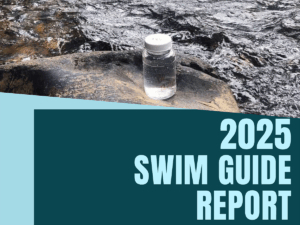News

Fishing for Facts – June 29, 2017
Final days push….bad legislation moving fast.
The word on the street is that the Senate will look to adjourn the session by tomorrow. With only 48 hours or less to go, the general assembly is in high gear moving legislation very quickly. This typically bodes very badly for environmental protection.
While there are still a number of bad bills moving, two bills we are watching very closely include House bill 374, “Business Freedom Act” and House Bill 56, a regulatory reform bill.
House bill 374 left the house as an uncontentious labor law technical corrections bill that was then stuffed with bad provisions in the Senate. The bill includes provisions, once again, favoring Duke Energy over the needs of the public regarding coal ash. But the most troubling is the provision that seeks to limit access to the court system by those impacted by state permitting decisions. This is an extraordinary handout to polluting industries, providing them with even greater advantage in the permitting system and will likely result in weaker environmental and property right protections.
Permitting agencies make wrong decisions (just look at Blounts Creek). That is what the writers of the Clean Water Act clearly, and correctly recognized when providing citizens the ability to legally challenge state actions. This bill however, seeks to undermine that right.
Here’s how (From the Smithblog):
- Only a person who submitted a comment before the permit was issued could appeal the permit. Even a person actually harmed by the permitted activity who would otherwise have appeal rights under the state’s Administrative Procedures Act, would be barred from appealing unless they commented during the permit review. The provision puts citizens appealing environmental permits at a significant practical disadvantage since a comment period may range from as few as 15 days to 60 days and the notice of opportunity to comment may not reach everyone directly affected by the permit decision.
- An issue could not be raised in the appeal unless it had been specifically identified in a comment to the agency before issuance of the permit. Comments are submitted in response to either a permit application or a draft permit – not the final permit decision. Limiting the appeal to issues raised in a comment means there may be no opportunity to challenge permitting errors that only become clear when the final permit has been issued.
Budget
In other news, Governor Cooper quickly vetoed the budget, arguing it “lacks structural integrity by failing to account for population growth, inflation and looming federal reductions, by using one-time revenue for recurring expenses, and by adopting a tax plan that will cause the state to fail to fund promised teacher salary increases in future years.” His veto was easily overridden due to the ruling party’s super-majority. The budget slashes the NC Department of Environmental Quality (DEQ) even further. In addition, the budget includes a large tax cut, that will result in approximately $1 billion in reduced revenue for 2018, leaving North Carolina in danger of not being able to fund environmental programs. With likely funding cuts coming from the federal budget for DEQ, the future of the agency does indeed look bleak.
Numbers on the Budget (from NC Conservation Network)
- Slashes the Department of Environmental Quality (DEQ), which has already suffered in recent years.
- Imposes a ‘management flexibility’ cut of $828K in the first year, rising to $1M in the second year.
- Cuts specific positions in the leadership team: Legislative Affairs, Public Information Officer
- Eliminates 7 administrative positions in the regional offices; these cuts will make the agency less responsive to permittees and other external contacts.
- Eliminates funding for the energy center at NC State University.
- Fails to fund positions needed to keep up with permit demand and enforcement for the erosion and sediment control, and DWR water permit programs.
Federal News
It’s been a tough week for water protectors across the nation. Just this week, Scott Pruitt’s EPA began its move to weaken the federal clean water act which could severely limit the waterways protected by law.
Waterkeeper Alliance responded to this news, read their response on their site here.
Previously, on Fishing for Facts:
Related News

Kingsboro data center concerns spark big turnout
December 4th 2025

Specialist tracking down sites for yearlong Slocum sampling
December 4th 2025

Tell EPA to ditch the 'Polluted Water Rule'
December 4th 2025

Riverkeeper delivers results at community grant program event
December 4th 2025

Riverkeeper graduations EJ Leadership academy
December 4th 2025

Sound Rivers' online store!
November 26th 2025

Riverkeeper tours Lick Creek conservation property
November 26th 2025

2025 Swim Guide Report
November 26th 2025


